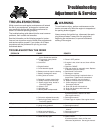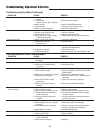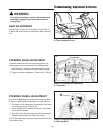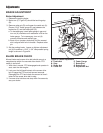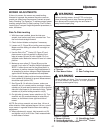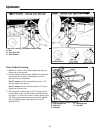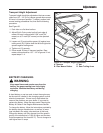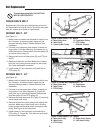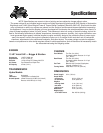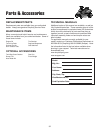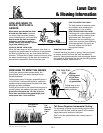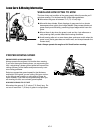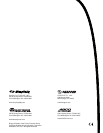
31
Specifications
ENGINE
13 HP* Intek OHV — Briggs & Stratton
Horsepower 13 HP @ 3400 rpm
Displacement 21 Cu. In. (344 cc)
Electrical 12 Volt, 3 Amp D.C. Battery 230 CCA
Air Cleaner Pre-Cleaned Air to Paper Filter
Oil Capacity 3 Pints (1.42 L)
TRANSMISSION
Hydro Models
Type Hydrostatic
Lubrication Transmission is a Sealed Unit
Ground Speeds Infinite Forward: 0-5.2 MPH (0-8.4 km/h)
Reverse: 0-2.3 MPH (0-3.7 km/h)
CHASSIS
Front Wheels Tire Size 13 x 5.00-6
Pneumatic Inflation Pressure 10 -12 psi
(,68 - ,82 bar)
Rear Wheels Tire Size 16 x 6.50-8
Pneumatic Inflation Pressure 10 -12 psi
(,68 - ,82 bar)
Fuel Tank Material: Non-Corrosive Polyethylene
Capacity: 2 Gallons (7.5 L)
Turning Radius Inside Rear Tire 12 In. (30.2 cm)
DIMENSIONS
Overall Length 61 In. (155 cm)
Overall Width
- w/30 mower 38.5 In. (97.8 cm)
- at rear wheels 33 In. (83.8 cm)
Height at
- steering wheel 41 In. (104.1 cm)
- seat back 35 In. (88.9 cm)
- engine cover 28 In. (71.1 cm)
Wheel Base 43 In. (109.2 cm)
Weight (appx.)
- 13 HP w/34”mower Net: 405 lbs. (183 kg)
NOTE: Specifications are correct at time of printing and are subject to change without notice.
* The power ratings for an individual engine model are initially developed by starting with SAE (Society of Automotive
Engineers) code J1940 (Small Engine Power & Torque Rating Procedure) (Revision 2002–05). Given both the wide
array of products on which our engines are placed, and the variety of environmental issues applicable to operating
the equipment, it may be that the engine you have purchased will not develop the rated horsepower when used in a
piece of power equipment (actual “on–site” power). This difference is due to a variety of factors including, but not lim-
ited to, the following: differences in altitude, temperature, barometric pressure, humidity, fuel, engine lubrication, max-
imum governed engine speed, individual engine to engine variability, design of the particular piece of power equip-
ment, the manner in which the engine is operated, engine run–in to reduce friction and clean out of combustion
chambers, adjustments to the valves and carburetor, and other factors. The power ratings may also be adjusted
based on comparisons to other similar engines utilized in similar applications, and will therefore not necessarily match
the values derived using the foregoing codes.



